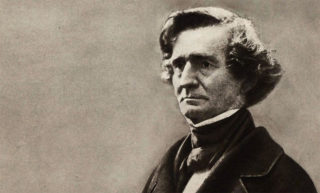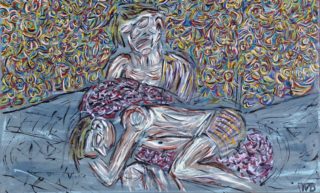Dancing Queen
Sinfonieorchester Basel
12 and 13 January 2022
Isabelle Faust, Violin
Antoine Tamestit, Viola
Werner Güra, Tenor
Ivor Bolton, Conductor
Benjamin Britten - Symphonic Suite from Gloriana, op. 53a
Wolfgang Amadeus Mozart - Sinfonia Concertante for Violin, Viola and Orchestra E flat major, KV364
Benjamin Britten - Matinées Musicales, op. 24
Against all odds, Benjamin Britten (1913 – 1976) became Britain’s national musical hero. As this month’s concert demonstrates, some of his lesser-known works are now getting the exposure (and praise) they deserve. Dance is the red thread that holds the works of the program together.
Britten’s talent for music was spotted at an early age. As Imogen Holst, the daughter of the other great English composer, Gustav Holst, once said, Britten could harmonise before he could write. His mother, a gifted singer, was confident enough to predict small Benjamin would be the next great B, the fourth after his illustrious predecessors Bach, Beethoven and Brahms. But his ascent to becoming England’s most celebrated living composer wasn’t obvious. Just too young to be immersed in the cosmopolitan lifestyle of the roaring twenties, Britten always remained a provincial guy. With the exception of a three-year interlude in New York, he lived for most of his life on the Suffolk coast. Moreover, although under the spell of Alban Berg as a teenager and young composer, he always stayed true to his belief in tonal music and classical form, making him the laughing stock among fellow composers who adhered to more modern styles. Furthermore, Britten’s homosexuality, and in particular his attraction to younger boys, was a continuous threat to his reputation. Perhaps most importantly, in the post-war years he was approached with suspicion due to his pacifism and his conscientious objection during the Second World War. But despite the fact that he was almost certainly interrogated by the secret service in 1953, he was also commissioned in the same year by the Royal Opera House Covent Garden to write an opera, Gloriana, as a part of the festivities for Queen Elizabeth II’s coronation.
Edmund Spenser’s allegorical poem The Faerie Queen (from the 1590s) formed the base of the libretto for Britten’s opera Gloriana, the name Elizabeth I goes by in the poem. As the opera not only heralded Elizabeth’s strengths, but also displayed her weaknesses, the work was met with disgruntlement and largely disappeared from the stage. However, Britten did create a symphonical suite from its most important musical material. In this suite Britten displays his ability to blend his own style with a neo-Tudor (renaissance) style of music, much like Stravinksy did with classicism. After the first movement, depicting a jousting tournament, the second is completely dedicated to a lute song. The Earl of Essex, for whom the queen had affectionate feelings, sings the gentle, introspective Happy were he. The lyrics reflect two of Britten’s most important themes: pressure of society on the individual and a yearning for a pure, unsullied and uncorrupted world. While the third and best-known movement is a mostly upbeat sequence of courtly dances, in the fourth and last reflective movement Gloriana moritura (Gloriana about to die) the queen seems to look back on her life gone by.
Just like Mozart’s Sinfonia Concertante for violin and viola, Britten’s Matinées Musicales, together with his earlier work Soirées Musicales, both recycling an array of Rossini themes, were used by George Balanchine to create ballets for the American Ballet Theatre. Dance thus links all three pieces on tonight’s program together.
These English program notes have been published in the magazine of the Sinfonieorchester Basel.






Comments